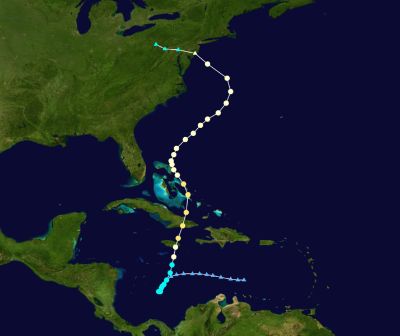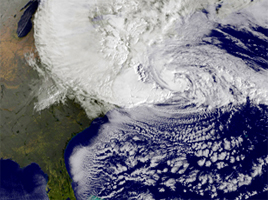Victims of “superstorm” Sandy are at a huge increased risk for a heart attack or stroke in the wake of disaster, says a top Palm Beach cardiologist.
However, there are precautions those affected by the hurricane can take to safeguard their health while trying to rebuild from the storm, renowned Palm Beach Cardiologist Chauncey Crandall, M.D., told Newsmax Health.
The stress from a hurricane can throw people over the edge, says Dr. Crandall. Studies show that people dealing with the aftermath of a natural disaster can have a hurricane heart attack during the weeks and months of clean-up and recovery.
We know from research after hurricane Katrina that the heart attack rate among Gulf-area residents tripled, and that their risk remained high not only during that event, but even for up to a year afterwards. Dr. Crandall is head of cardiac preventative services at the Palm Beach Cardiovascular Clinic in Palm Beach County, FL. He has extensive experience dealing with natural disasters in Haiti and other places.
One of the reasons why hurricanes are so dangerous to people’s hearts is that when they strike, the level of stress hormones in our blood increases. This not only can cause heart attacks, but strokes as well, Dr. Crandall said. Furthermore, these dangerous hormones do not subside quickly once the threat has passed. People in these situations can experience fear and anxiety for years afterwards, and that keeps their stress levels higher than normal, and their heart attack risk is higher as well, he added.
Hurricane Sandy Affected Millions of People
But it’s not only stress that concerns Dr. Crandall. In the weeks following hurricane Sandy, these people will be faced with massive clean-up. They’ll be rebuilding their houses, cutting down trees, and hauling away debris. Many of these people are elderly, with underlying heart disease, and so they are at great risk.
Here is Dr. Crandall’s advice to prevent a hurricane heart attack:
- Don’t stop taking your prescribed heart medication. If you are out of medication and cannot reach your doctor or pharmacist, head to a hospital emergency room or urgent care clinic.
- Don’t exhaust yourself by attempting to do too much clean-up work yourself. Seek help from neighbors, friends, or your local church.
- Be sure to drink plenty of water to stay hydrated.
- If your power was out, discard any food from the refrigerator that may have spoiled.
- Take a daily low-dose aspirin to prevent heart attack-causing blood clots.
If you experience any signs or symptoms that may indicate heart attack, call 911 immediately. Don’t drive to the hospital or have someone else drive you because emergency measures can be started in the ambulance that could save your life.

